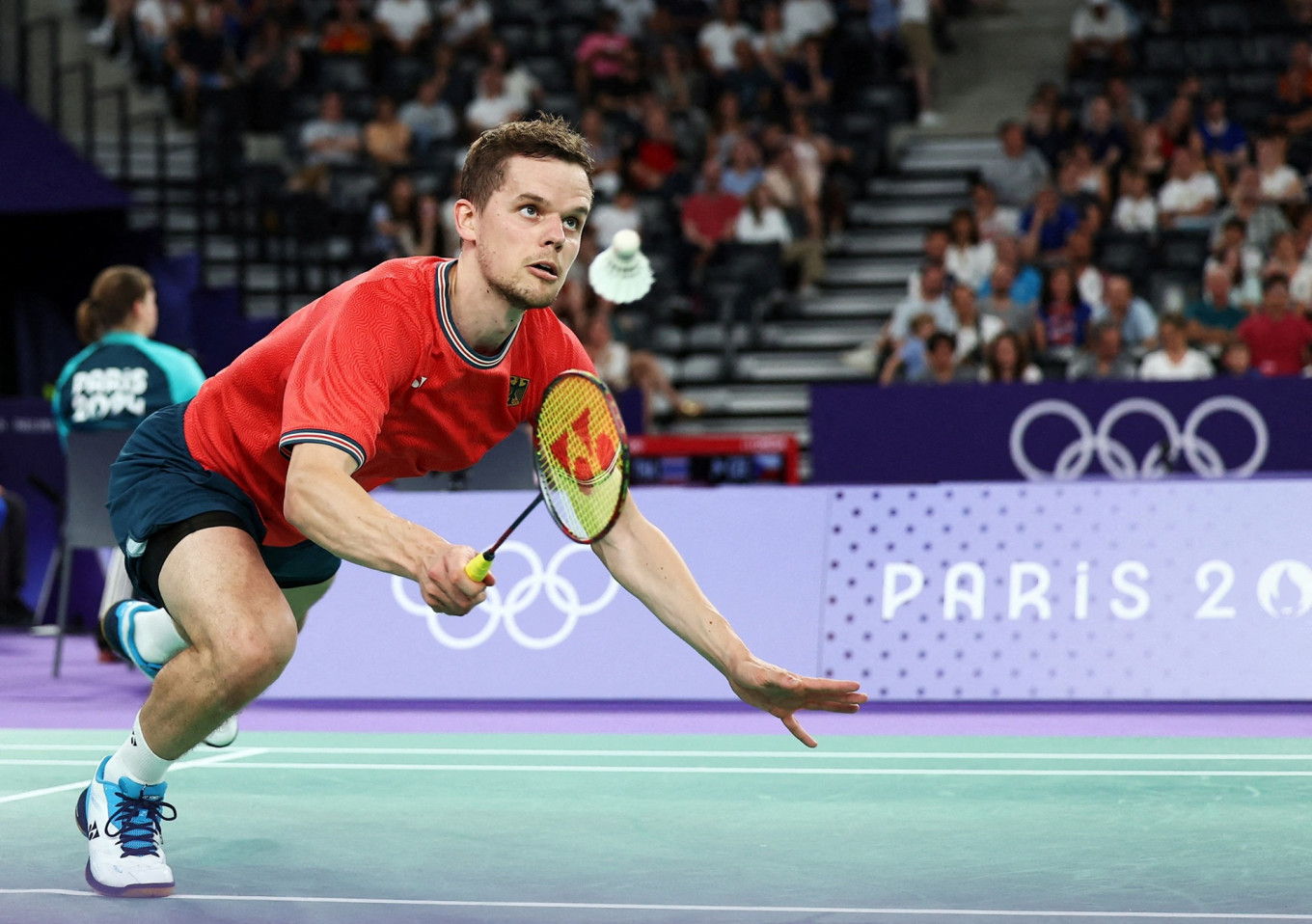Popular Reads
Top Results
Can't find what you're looking for?
View all search resultsPopular Reads
Top Results
Can't find what you're looking for?
View all search resultsInvestment pays off as Western players improve on biggest stage
Badminton has become more lucrative over the past decade and investment in its infrastructure, such as training, facilities and health, from national and global badminton organizations has helped attract and develop players in other parts of the world.
Change text size
Gift Premium Articles
to Anyone
China and South Korea are having to fight much harder in the Olympic badminton in Paris than at the Tokyo Games three years ago as the Asian powerhouses face a tougher challenge from Europeans, Latin Americans and North Americans than they have in the past.
Badminton has been mostly dominated by Asian countries, particularly China, since it became an Olympic sport in 1992 in Barcelona. Only seven countries have ever won gold medals at the Olympics: China, Indonesia, South Korea, Japan, Taiwan, Denmark and Spain.
But the sport has become more lucrative over the past decade and investment in its infrastructure, such as training, facilities and health, from national and global badminton organizations has helped attract and develop players in other parts of the world.
In 2023, the Badminton World Federation (BWF) reported a total gross income of US$43.1 million, up substantially from the $12.5 million it posted in 2013.
"You need natural resources [to develop players], which require good coaches, education, experience, development, facilities, sports science knowledge," said Thomas Lund, Danish former Olympian and mixed doubles world champion, and Secretary General of the BWF.
He added that to develop systems that breed good players takes more than a decade, pointing out that the change has been gradual, with players from Asian countries like India, Japan and Singapore only over the last decade or so joining China, Indonesia and South Korea on the podium.
In Tokyo, there were three upsets in the first three days of the Olympics that involved an Asian country losing to a non-Asian country: when Israel's Misha Zilberman beat India's Sai Praneeth in the men's singles, when Germany's Mark Lamsfuss and Isabel Lohou beat a Malaysia mixed doubles pair, and when Marcus Ellis and Lauren Smith beat a Thai mixed doubles duo.
On the first day of play in Paris, Bulgarian women's doubles world number 22 pair Gabriela and Stefani Stoeva defeated world number 18 Hong Kong's Yeung Nga-ting and Yeung Pui-lam.
In addition, where in Tokyo many of the Asian victories were clear-cut, there have been several near upsets in Paris.
On day one, though they ultimately lost, Britain's Ben Lane and Sean Vendy put their Malaysian opponents through their paces, as did France's Margot Lambert and Anne Tran with Thailand.
In a nail-biting match on day two, Germany's Yvonne Li held her own against reigning Olympic champion China's Chen Yufei before bowing out. Another close call was when the United States' Xu twins lost after three games in women's doubles against Hong Kong.
In some cases, non-Asian players, bar Danes, came to within a hair's breadth of victory in one of two games in a match, including men's singles shuttler Kevin Cordon of Guatemala, French mixed doubles pair Thom Gicquel and Delphine Delrue, and America's Vinson Chiu and Jennie Gai.










